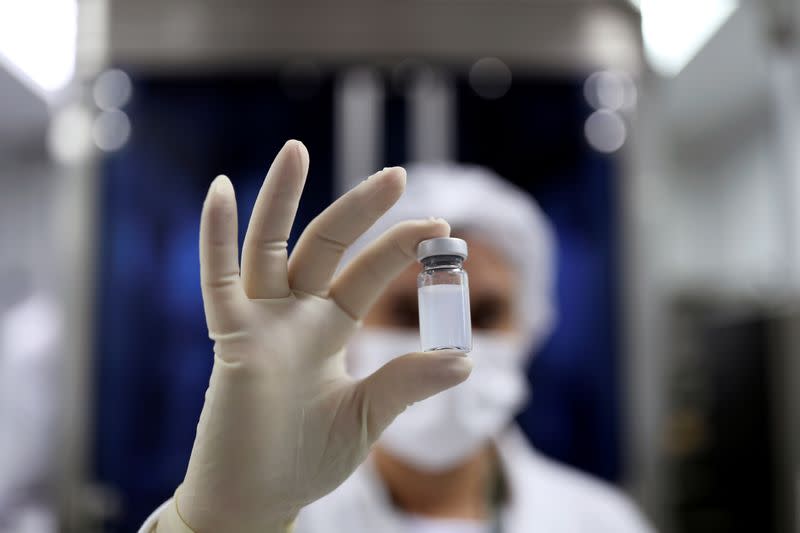By Aislinn Laing
SANTIAGO (Reuters) – Chilean officials said on Thursday that they remain confident in a vaccine developed by Chinese Sinovac, despite nervousness elsewhere, after researchers in Brazil acknowledged that its effectiveness was less than initially suggested.
Rodrigo Yanez, the Chilean undersecretary of commerce in charge of purchasing COVID vaccines for the country, said the Chilean health regulator is evaluating all available data and will announce its decision on an emergency implementation of inoculation soon.
He said vaccines would serve their critical purpose if they helped to reduce severe symptoms, hospitalizations and deaths.
This week, researchers in Brazil released clinical data from a late-stage trial showing that the Sinovac vaccine was 50.4% effective in preventing symptomatic infections, including “very mild” cases. In the previous week, they said the vaccine, called CoronaVac, showed 78% effectiveness against “mild to severe” cases.
“The numbers in Brazil are good, although they can be misleading in terms of focusing only on 50%, because the goal is to prevent people from filling the hospitals and fatal victims,” he told Reuters in a telephone interview. “It must be very effective with the most serious symptoms of the disease, as long as the clinical data supports what was announced this week.”
Chile paid $ 3.5 million to host a clinical trial of the vaccine and also ordered 60 million doses to be administered to its population of 18 million over three years.
The country’s regulator sent two inspectors to Sinovac’s Beijing plant in November, before the first doses expected to arrive in Chile in mid-January.
Chile has already started vaccinating its healthcare professionals with a vaccine developed by Pfizer Inc and its regulator is also evaluating AstraZeneca’s approval for emergency use.
The disappointing news of Brazilian efficacy prompted Malaysia and Singapore, which also have purchase agreements with Sinovac, to say on Wednesday that they would seek more data from the Chinese company on efficacy rates before approving and purchasing supplies.
However, vaccination campaigns against Sinovac are already underway in Indonesia and Turkey, with Turkish President Tayyip Erdogan receiving the vaccine on Thursday.
Yanez told Reuters that the Chilean Institute for Public Health would examine data from Brazil, as well as Turkey and Indonesia, which reported 91.25% and 65.3% effectiveness, respectively, based on data from interim studies.
He said the Sinovac vaccine was not the only one that raised doubts, pointing to experts in Australia who questioned whether collective immunity could be achieved with the 62% effectiveness reported for the AstraZeneca vaccine.
“The common flu vaccine is between 50% and 60% effective – we carry out massive vaccination campaigns at these levels of effectiveness,” he said.
“We are in a position where we need to stop the most severe impact of COVID-19. No vaccine so far is able to prove that it also prevents the spread of infections, at the end of the day they are all more or less efficient in helping you to avoid the impact. “
(Reporting by Aislinn Laing, edited by Alexandra Hudson)
